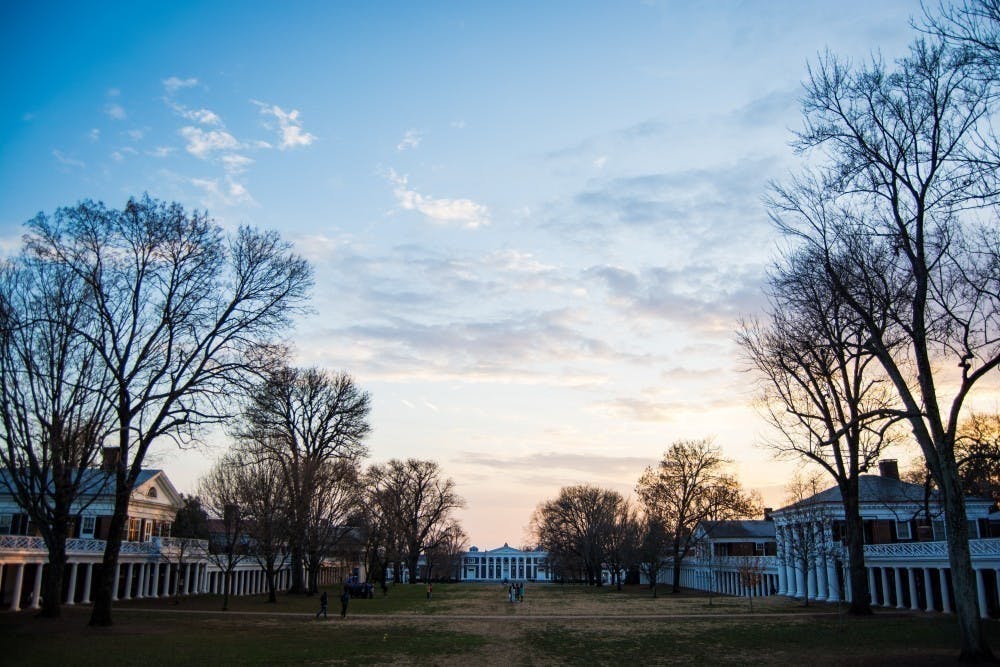Third-year Education student Lara Veldman and third-year College student Amber Peake founded Period at U.Va. to end period stigma after noticing that there was no contracted independent organization specifically serving menstruators in the University and Charlottesville communities to this level. The chapter was founded in the fall of 2020 and officially launched Feb. 1. Today, all 12 members are advocating for increased access to menstrual products in quarantine housing while also hoping to teach the University community about menstrual equity.
Period at U.Va. is a chapter within the Period movement, a global youth-powered non-profit organization that is fighting to end period poverty and period stigma through education, service and advocacy. The work done by the University chapter seeks to combat menstrual issues in the University and Charlottesville community as team members have noticed a lack of conversation and advocacy on Grounds about period poverty and menstrual education.
The chapter is also working to increase access to period products around Grounds. Members, among other University students, particularly noticed a serious lack of menstrual products in quarantine and isolation dorms.
“When I was put into the isolation dorms, I contacted the committee in charge of organizing my housing in regard to accessing tissues, cold medicine and period products,” said Jacqui Harari, first-year College student and executive member of Period at U.Va. “Their response was to ask a friend to pick up my desired items and drop them off.”
Personal care products including pads, tampons or lines are included on the University’s suggested packing list for quarantine and isolation housing However, some people who menstruate may be informed they are to move to quarantine housing when they do not have those items available to them, causing more complications.
Harari also explained that one of her peers struggled to obtain menstrual products while quarantining at the Hilton Inn, a hotel that provides rooms for students exposed to COVID-19.
“She had to order period products from GoPuff while quarantining at the Hilton Inn,” Harari said. “Unfortunately, she was required to buy other products from GoPuff due to their minimum price eligible for delivery.”
All GoPuff orders must be at least $10.95 to be eligible for delivery while the average cost for a box of tampons is only $7.
The lack of menstrual products in isolation housing has become a recurring issue for many students, forcing students to resort to their friends and online delivery services for access to basic necessities.
“These are basic needs that non-menstruating leaders don’t always think about or consider when planning and making decisions,” Veldman said.
Veldman added that due to the chapter’s efforts, Student Health has become aware of this problem and discussed making menstrual hygiene products easily attainable for students in isolation with their team, but they have yet to hear back. Period at U.Va. is continuing to call upon the University to increase accessibility to menstrual products and generate conversations about menstrual equity.
“It is hard to imagine individuals not having access to period products or even period education,” Veldman said. “However, period poverty and education inequity exist.”
Period poverty refers to being unable to purchase menstrual hygiene products. While some may take these products for granted, many menstruators who live in poverty have to make choices every month regarding whether to allocate their money to period products. Those in homeless shelters and prisons also face challenges accessing these supplies.
Period at U.Va. hosts monthly member meetings where Veldman and Peake facilitate conversation about periods. Oftentimes, they bring in outside educators to share their experiences and generate a safe space for people who menstruate. In March, Dr. Lisa Christianson from Student Health gave a presentation on period myths.
“As we work towards our CIO, members are debunking period myths and learning how to destigmatize menstruation,” Harari said.
One of the most common myths is that every menstruator has access to period products. A study of college-aged women in January found that 14.2 percent of their nationally-representative sample of 471 students had experienced period poverty in the past year, with another 10 percent having experienced it in the past month.
Another myth is that periods are gross and shameful. However, half of the world's population experiences menstruation, which is a normal bodily function. Period at U.Va. seeks to disprove these myths and create an open space where menstruators can share their experiences and have conversations.
“This stigma has prevented menstruators from openly sharing their experiences and hiding when they think something may be wrong,” Veldman said.
In 2018, Student Council and the Inter-Sorority Council piloted a menstrual hygiene program, which involved placing free menstrual hygiene products in five Newcomb Hall bathrooms for a two week period. Additional funding was provided for the initiative in 2019, with locations of free menstrual hygiene products expanding to bathrooms in Newcomb Hall, Madison House and various libraries on Grounds.
Members of Period at U.Va. work to continue educating University students and community members about menstruation while addressing the menstrual needs of students on Grounds. The team advocates primarily through social media, specifically Instagram, where they share infographics and educate followers about periods.
“We hope to be able to hold larger panels and educational sessions in the future for the larger Charlottesville community,” Veldman said.







